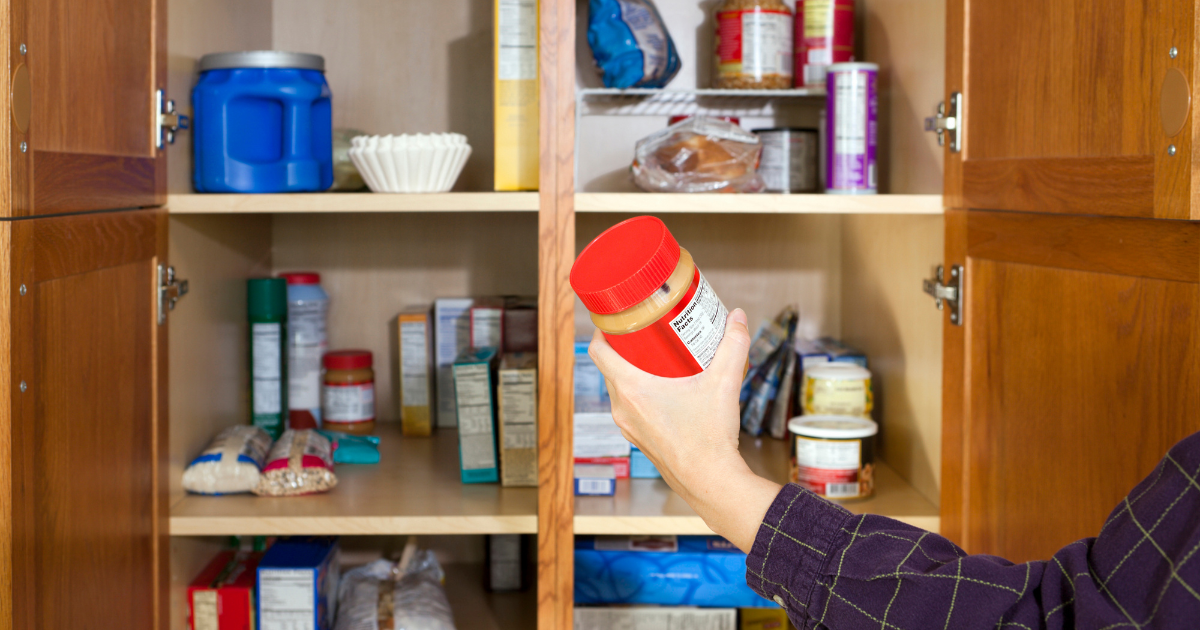5 foods to stock up on in case of an emergency

“Hope for the best; prepare for the worst.” It’s a common idiom we’ve all heard at one point or another. Still, many of us are un- or underprepared if a natural disaster or other emergency stuck our home. Only 48% of Americans have created emergency plans, according to a 2020 Federal Emergency Management Agency survey.
While this number marks an increase over previous years, it also means more than 50% of the population hasn’t developed an emergency plan. So, it’s likely half your neighbors aren’t as prepared as necessary in the case of a natural disaster or similar emergency.
Stocking Up for an Emergency
If you’re ever in an emergency, having an emergency food and water supply is imperative. Experts from the Centers for Disease Control and Prevention recommend you keep at least a three-day supply of emergency food and water per person.
“Most people already have a few days’ worth of food in their cupboard and fridge,” says Joel Haman, Nebraska Medicine Emergency Preparedness coordinator. “But ideally, if you are preparing for an emergency, you will want to start off with at least two weeks to a month of food storage as a goal and keep children in mind while preparing.”
You’ll also want to store your emergency food supply appropriately to ensure it won’t spoil prematurely. “Keep your food in a cool, dry space and away from fluctuating temperatures,” says Haman.
In addition to this emergency food supply, you’ll also want an emergency water store. “I recommend storing at least seven days of water per person to start off with,” says Haman. “Experts recommend storing one gallon of water per day, per person.”
Like your food supply, you’ll want to store your water in a cool, dry place. “You don’t want the water to get hot because chemicals can leach into it,” says Haman. “Also, make sure you’re using food-grade plastics to store your water, as this type of plastic is designed for water storage and won’t leach chemicals into your water supply like other plastics.”
You’ll also want to avoid storing water containers up high, as they can become a falling hazard. Similarly, don’t let your water sit there forever. “Even if it’s in food-safe plastic, I recommend replacing your water supply at least once a year to ensure it’s fresh, clean, and safe,” says Haman.
5 Foods to Store for an Emergency
There are several types of foods best suited for an emergency supply. Five essential foods to stock up on for an emergency include:
- Canned goods – “The number one food item I recommend for anyone preparing for an emergency is canned foods because they can last many years,” says Haman. “You’ll want various canned goods, including different meats, fruits, and vegetables”
- Dry foods – “You can also supplement your canned foods with dry foods such as beans, rice, and lentils,” says Haman. Additionally, wheat berries, which you can store for up to 25 – 30 years, are an excellent source of protein and fiber
- Nuts and nut butter – Peanuts, almonds, walnuts, and other nuts and their butter forms are another long-lasting, nutrition-packed food source
- Jerky – Dried meat, or jerky, is another good, long-lasting food. You can also buy fruit jerky to supplement your supply of canned fruit
- Freeze-dried foods – “If you have the money to spend on it, freeze-dried food is amazing for long-term storage,” says Haman. “It can last over 25 years, and you can get almost any freeze-dried food, including fruit, peanut butter, cereal, and milk”
In addition to these five foods, you’ll also want to ensure you have food for family members with special dietary needs, babies and pets.
Other Items You’ll Need in Your Emergency Store
“You’ll also want a manual can opener, as there’s no guarantee you’ll have power to use an electric one,” says Haman. “Ideally, you’ll want two, one main and another to serve as a backup in case the first breaks.”
Similarly, you’ll need a heating source to prepare food safely or sanitize water. “I recommend a candle stove – also called a candle lantern,” says Haman. “There are many types, and you can find them for less than $50 in many places.”
These stoves use emergency candles, which burn slower than standard candles, so you don’t have to worry about replacing them frequently. They also serve as a light source, doubling their utility.
Safeguarding Your Food Supply
When building your emergency food store, it’s essential to think of those around you. You’ll want food for your family but also any pets and babies. Similarly, consider the needs of your neighbors.
“Often, during a disaster, the first people to show up to FEMA centers for help or food were people who were prepared but were overly generous,” says Haman. “Because they had emergency food already, others came to them, and they gave all their reserve food away.”
“That’s why you always want to plan on having a little bit more than you need because you never know who might come knocking on your door in an emergency.”




